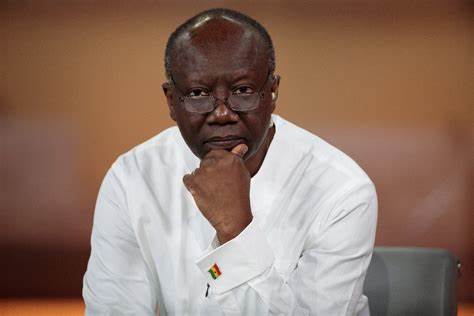Government will borrow an amount of ¢22.1 billion in the last quarter of this year.
In December 2020 alone, ¢11.3 billion will be raised from both short and long term financial instruments.
According to the Bank of Ghana issuance calendar, ¢19.6 billion will be used to settle principal and interest [rollover maturities] of existing loans.
¢2.5 billion fresh issuance will, however, be used to finance government projects.
Government in September had planned to borrow ¢22.7 billion between September and November 2020. Out of that, ¢3.05 billion was expected to be fresh issuance.
Out of the total amount to be raised in quarter four 2020, ¢9.7 billion which is the highest amount, will be issued via a 91-day Treasury bill, the calendar shows.
The lowest amount to be raised is ¢287 million which will be done through a 20-year bond. The 20-year bond was originally scheduled to be issued in November but had to be pushed to December because of the current market conditions.
According to the Finance Ministry, the 91-day and 182-day Treasury bills will be issued every week, whiles the one year Treasury note will be floated every fortnight.
This will, however, be done through the primary auction with settlement being the transaction date plus one working day.
Securities of two-year up to seven-year will, however, be issued through the book-building method, where a pricing guideline will be set.
The additional ¢2.5 billion will add up to government’s total debt of ¢263 billion as of July 2020.
World Bank cautions nation against rising debt
The World Bank in its latest October 2020 Africa Pulse Report projected a significant rise in Ghana’s total public debt for this year.
According to the Bretton Wood institution, this is due to the widening fiscal deficit as a result of lower revenue and high expenditure brought about by covid-19.
The country’s debt hit ¢263 billion, about 68.3% of Gross Domestic Product in July 2020.
Ghana still remains a high-risk debt distress country, according to the World Bank’s analysis.
Neighbouring Ivory Coast is, however, classified as having moderate debt levels and in the moderate risk category.
Latest Stories
-
Saturday’s heavy rainstorm caused outages within our network – ECG
32 minutes -
Police arrest 3 over gold robbery at Wassa Afransie
1 hour -
Against all odds: Zinabu Issah clinches silver for Ghana at WPA Marrakech 2025
2 hours -
ASFC 2025: Ghana girls complete host-and-win mission after beating Uganda
2 hours -
NPC President congratulates new GOC Executives
2 hours -
Stonebwoy displays maturity amid Aisha Modi’s attacks: a masterclass in brand integrity and respect
3 hours -
Afro-Arab Group CEO commends Kwahu Business Forum
3 hours -
CAF President Motsepe vows action against rising stadium violence
3 hours -
You’ll be prioritised for jobs in next NPP government – Bawumia to dismissed workers
3 hours -
Lola Hair and Beauty College officially launched to promote TVET
4 hours -
Minority condemns sacking of TTH CEO, demands Mahama reprimand Health Minister
4 hours -
Extraordinary photos from the funeral of Pope Francis
4 hours -
Pope Francis laid to rest after Vatican funeral service
4 hours -
Our polling station executives and grassroots are our greatest assets, I thank them – Bawumia
5 hours -
Trump questions Putin’s intentions after meeting with Zelensky ahead of Pope’s funeral
5 hours

